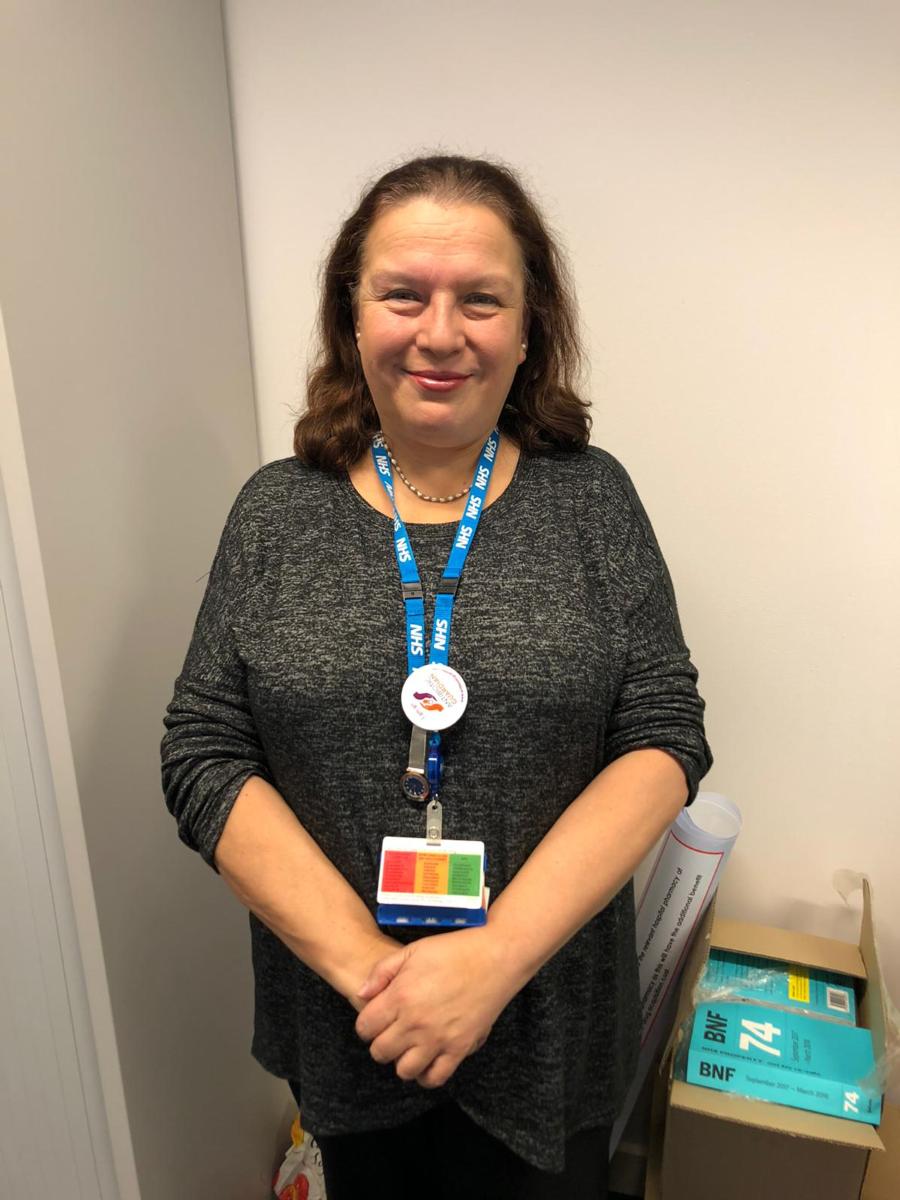Lead Antimicrobial Pharmacist, Rachel Leff discusses the importance of correct antibiotic prescribing

Can you please tell us a bit about yourself and your role at Barts Health?
Hello, my name is Rachel Leff and I am the new interim Lead Pharmacist for Antimicrobials and Infection Prevention for Barts Health, and I am really happy to have joined an excellent enthusiastic team to help spread good antimicrobial stewardship practices and to reduce antibiotic resistance at our Trust.
So why are antibiotics so important and what are they used to treat?
Antibiotics are important because they are used to treat bacterial infections, including sepsis, and prevent infections from occurring when patients are undergoing a procedure or surgery. Effective antibiotics can save lives, but if they are used inappropriately, adverse effects and increased antibiotic resistance can develop, which eventually leads to reduced effectiveness of antibiotics and more difficult to treat infections.
What are some of the reasons for over prescribing antibiotics and what are the consequences?
Some of the reasons for overprescribing include:
- Using antibiotics to treat viral infection, or non-infectious conditions, e.g. some exacerbations of COPD.
- Using more powerful, broad spectrum antibiotics to treat sensitive bacteria. This is why it is so important to send cultures and check the sensitivities so that antibiotics can be de-escalated to more narrow spectrum targeted options, which have less adverse effects on friendly gut bacteria.
- Treating culture results that represent colonisation rather than infection, e.g. asymptomatic bacteriuria in the >65 age group.
- Using IV antibiotics for too long when they should be changed to the oral route as the patient improves.
The consequences of over-prescribing antibiotics is that antibiotic resistance can result. Matt Hancock, the Health Minister has said that the threat of antibiotic resistance is one of the three major threats in the world (the other two being global warming and terrorism).
What is the call to action for those at the bedside?
There is a lot that can be done!
For Doctors:
- START SMART – THEN FOCUS. Guidelines for this government initiative can be found here
- Send cultures before starting antibiotics, and then review the antibiotics (especially broad spectrum antibiotics such as meropenem, piperacillin/tazobactam, co-amoxiclav and ciprofloxacin) when results are available to change to a narrower spectrum options.
- Document the indication of the antibiotic in the notes. Stop if there are no signs of infection, change to oral if the patient has improved and is eating and drinking and document the duration of the course of antibiotic according to guidelines. If an antibiotic is to continue, state the reason why e.g. deep-seated infection.
For Nurses: if you see a patient on intravenous antibiotics that is clinically improving, afebrile and is eating and drinking ask the doctor if the patient could be changed to oral antibiotics. If you’re unsure, then ask your ward pharmacist.
For Pharmacists: prompt teams to carry out the 72 hour review if not yet done and challenge antibiotic prescriptions that are not following Trust guidance. You can discuss with the site antimicrobial pharmacist and/or microbiology if you have concerns.
This week is World Antibiotic Awareness Week, and gives me a great opportunity to highlight some of the crucial work that is underway at the moment:
1. Improving the diagnosis and treatment of UTI in >65 year-olds (CQUIN): Did you know that in people over 65 years of age, bacteria can be found living harmlessly in the urine? This can lead to false positive leucocytes and nitrites on a urine dip. This does not indicate infection and does not require antibiotics UNLESS the patient has signs and symptoms such as new frequency or urgency, or new or worsening delirium/debility.
So don’t be dipstick (:)), it is a waste of time and money in this situation and could lead to unnecessary antibiotics with adverse side effects. For further guidance on this prescribing scenario please see here.
2. Optimising Antibiotic Prophylaxis in Elective Colorectal Surgery (CQUIN): Did you know that for an elective colorectal procedure A SINGLE DOSE of appropriate antibiotic at induction is sufficient to prevent surgical site infection? Further doses should only be given if there has been a prolonged procedure (>4 hours), blood loss (>1.5L) or there is clear evidence of infection. We are working with surgical teams to reduce excessive and unnecessary post-operative antibiotics in order to prevent colonisation and infection with more resistant bacteria.
3. 72 hour Antibiotic Review: It is very important as part of the antimicrobial stewardship that all antibiotics are reviewed and a decision documented by the clinical teams. This will be audited by pharmacy in the next few months.
The Antimicrobial Pharmacy and Infection team will have stands at each site during World Antibiotic Awareness Week (18th - 24th November) with further information and will also be visiting wards to promote the above initiatives. We’ll be posting information on our activity on Twitter: @BH_Infection… so come meet us or follow us. If we all work together in improving the way antibiotics are used, this will result in a better future for us all!!!

